I Grew Up Worshipping Carrie Bradshaw, But I'm Ready to Say Goodbye
How Sex and the City redefined love, work, and friendship for a generation of Millennial women like me

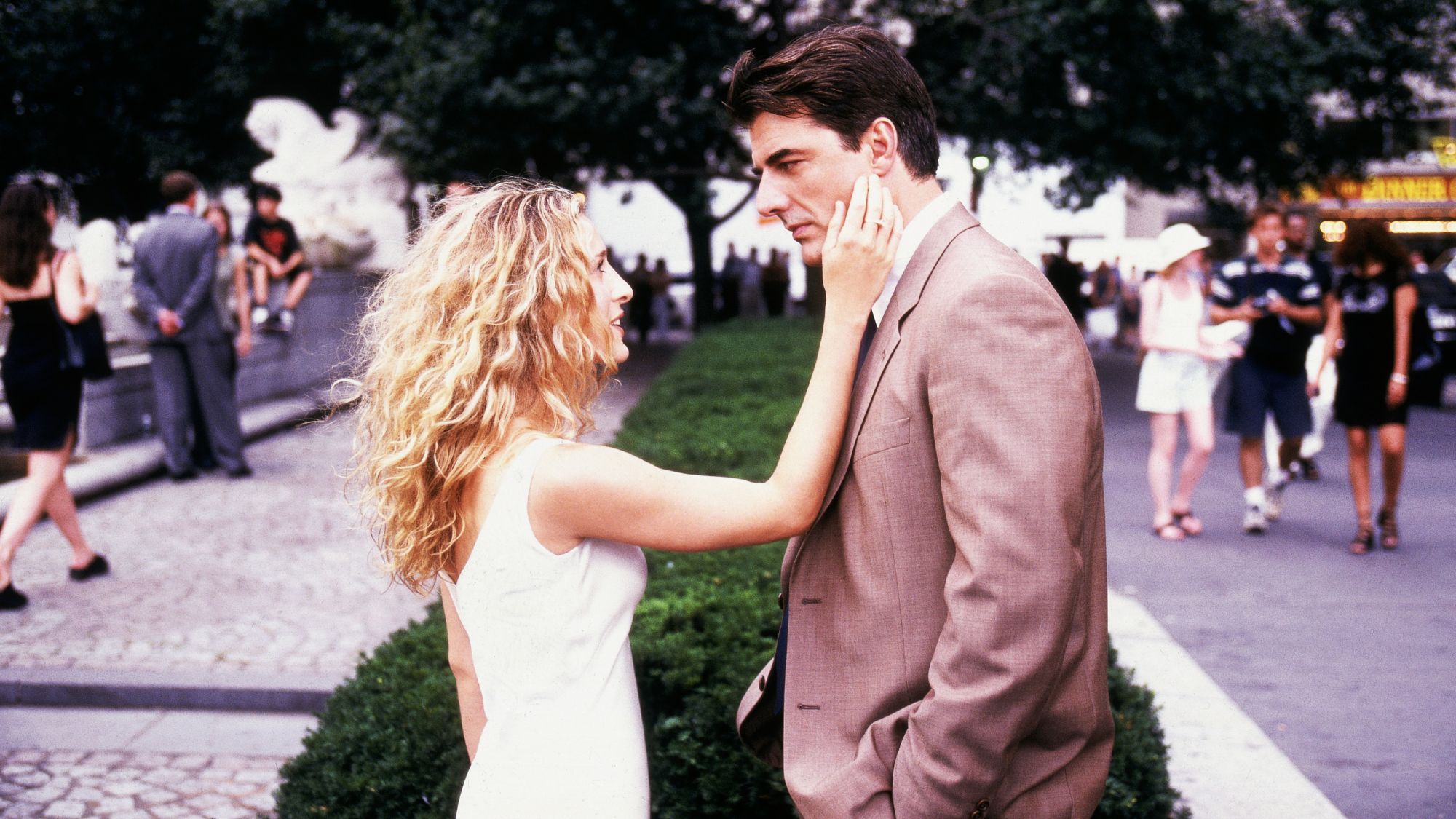
Celebrity news, beauty, fashion advice, and fascinating features, delivered straight to your inbox!
You are now subscribed
Your newsletter sign-up was successful
Maybe it’s my c-c-c-curly hair, or my overuse of rhetorical questions. Most likely, it’s because I’m a thirty-something woman living in a cosmopolitan (get it?) city and writing for a living. But throughout my career, I’ve been compared—fondly, I hope—to Carrie Bradshaw. I’m not alone in this comparison; countless column inches have been dedicated to writers claiming their likeness to Candace Bushnell’s iconic protagonist. This speaks to Carrie Bradshaw’s profound impact on women—not just of my generation (millennials), but of many others, too.
Now, and just like that… after 27 years on the air, Carrie Bradshaw is closing the chapter.
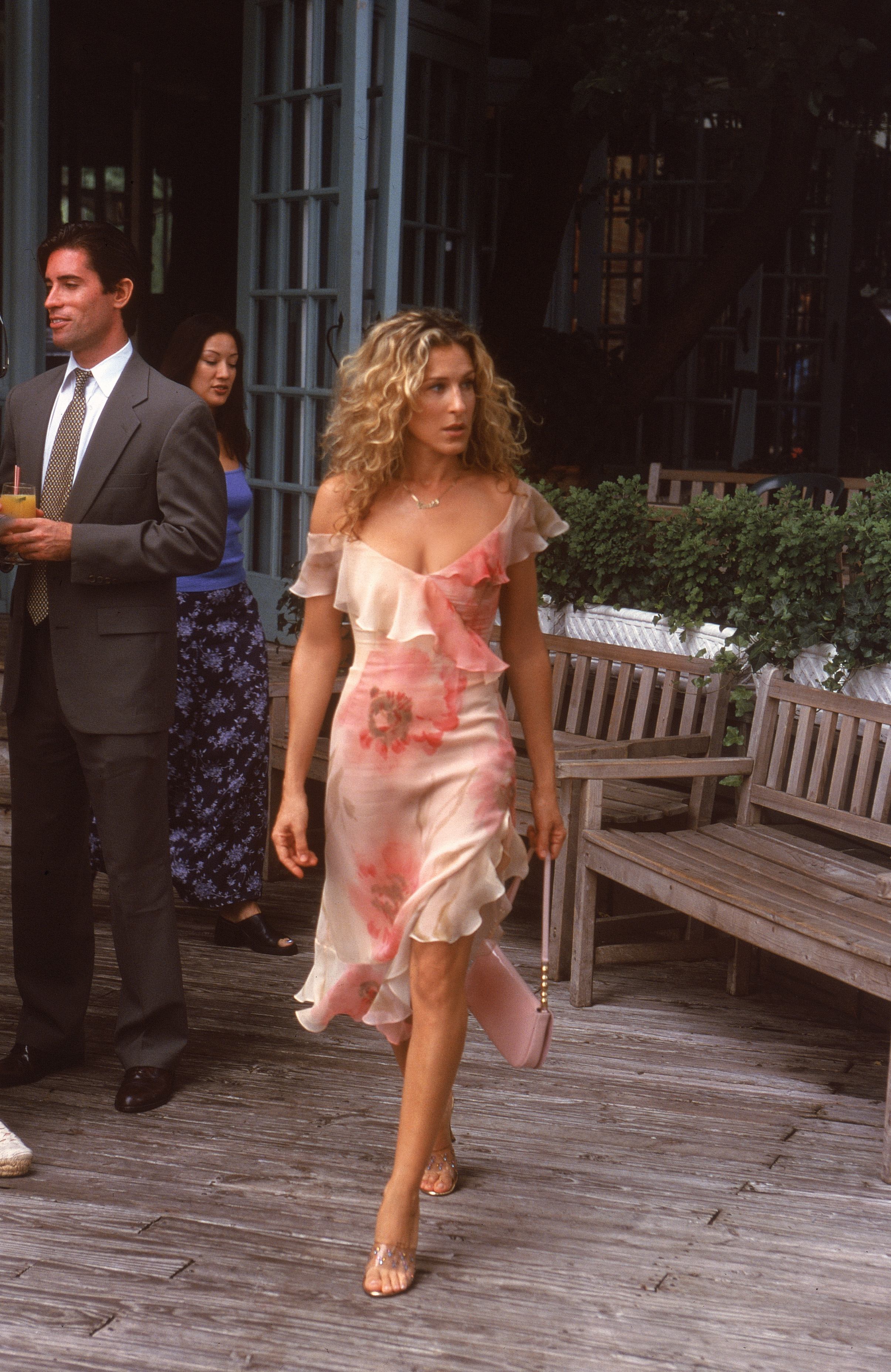
POV: She doesn't know she's about to tumble into the Hudson river
I was only eight when the pilot aired in the UK on 3 February 1999, and thirteen when season six wrapped in February 2004. I never experienced the show in real time, but in many ways, my peers and I are products of Sex and the City. Studying Fashion Journalism in the 2010s, my lecturer would often lament “that bloody Carrie Bradshaw” for raising a generation of girls to believe they could make a living penning one column a week. Admittedly, graduating into a recession and a crumbling media landscape, I’ve harboured my own resentments, but I’ve never managed to hold a grudge for long.
While I can’t remember a time pre-SATC, I’ve watched enough TV to know that, before, female characters were often written as accessories to a man’s narrative or reduced to tired stereotypes: the saint or the seductress, the wife or the sidekick. Then came four women strutting down a Manhattan street in pin-thin Manolos, talking frankly about sex, ambition, ageing, and insecurity, and the cultural landscape shifted forever.
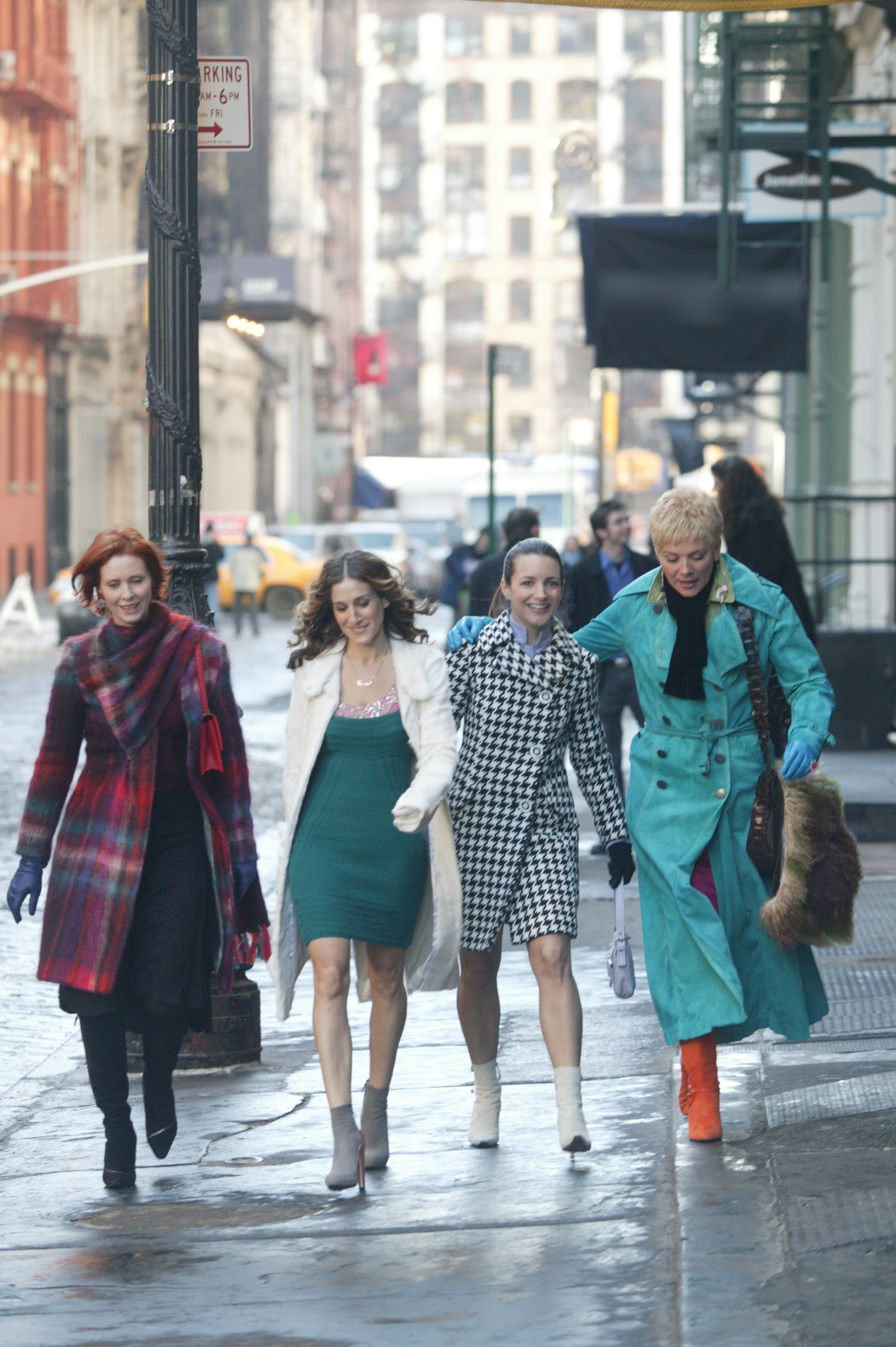
Miranda, Carrie, Charlotte, and Samantha
Yes, the women—Carrie in particular—would obsess over men, but the real love story was the friendship between the characters. In a world that often pits women against each other for male approval, SATC switched the script and made female friendship not only visible but foundational. It taught me early on that the love between friends can be as life-changing as any romance.
Having grown up with Disney princesses (many of whom, peculiarly, had no friends at all), this was a revelation. Not just that a woman’s most enduring relationship could be with her friends, but that those relationships could be as rich, dramatic, and emotionally resonant as any romance. Sure, I lusted after the push-pull excitement of Big and Carrie (forgive me, I was young), but what I really yearned for was the friendships. This is still what strikes me most when I rewatch it now. In fact, at times, I’ve even wondered if shows like Sex and the City and Friends gave millennials like me unrealistic expectations of adult friendships.
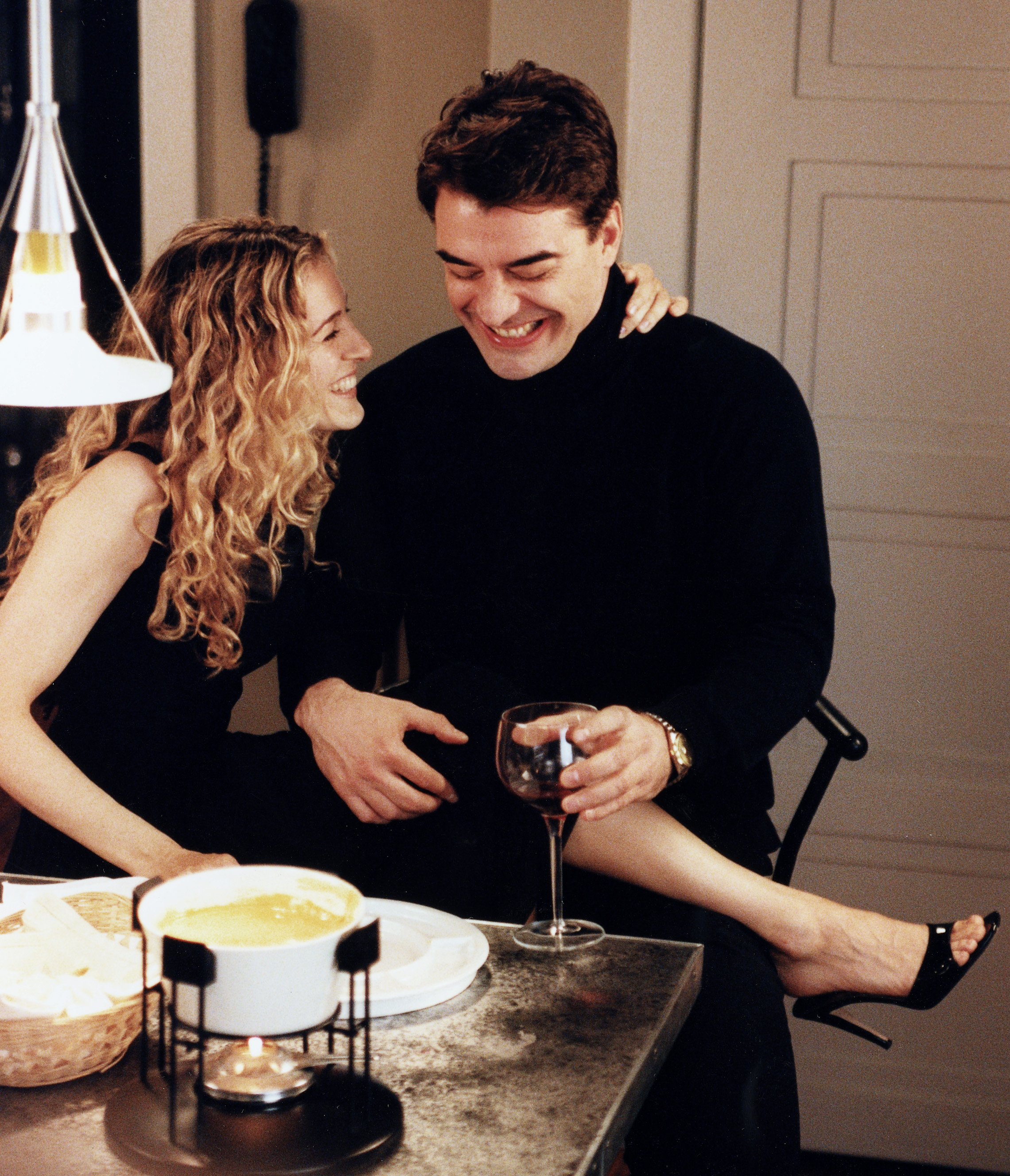
The ill-fated couple that gave us the line: "If you're tired, you take a nappa, you don't move to Nappa".
SATC taught me that friendships need to be tended to with as much love and devotion as we dedicate to our romantic relationships. It taught me that the best friendships are romantic.
Celebrity news, beauty, fashion advice, and fascinating features, delivered straight to your inbox!
The show also validated the centrality of chosen families—especially for single women in cities where traditional markers of success (house, marriage, kids) tend to be delayed, redefined, or rejected entirely. Now, as a 34-year-old woman, I can appreciate this even more. I’ve seen in my own life how different life paths can act as a wedge between friendships, but in many ways, Carrie and her crew offered a map for navigating those shifts.
In Miranda, we learned that having a baby needn’t erase your identity (and that you can still have a kid and not like other people’s); Samantha’s sex-positivity showed us that our bodies, pleasure, and desires are ours to claim, without guilt or compromise. She also delivered the line: “I love you, too, Richard, but I love me more.”
There’s a well-explored theory that every woman is either a Carrie, Miranda, Charlotte, or Samantha. I tend to think most of us are a mix. But whatever combination, SATC encouraged me to embrace myself wholly—even the messy parts—and romanticise my life.
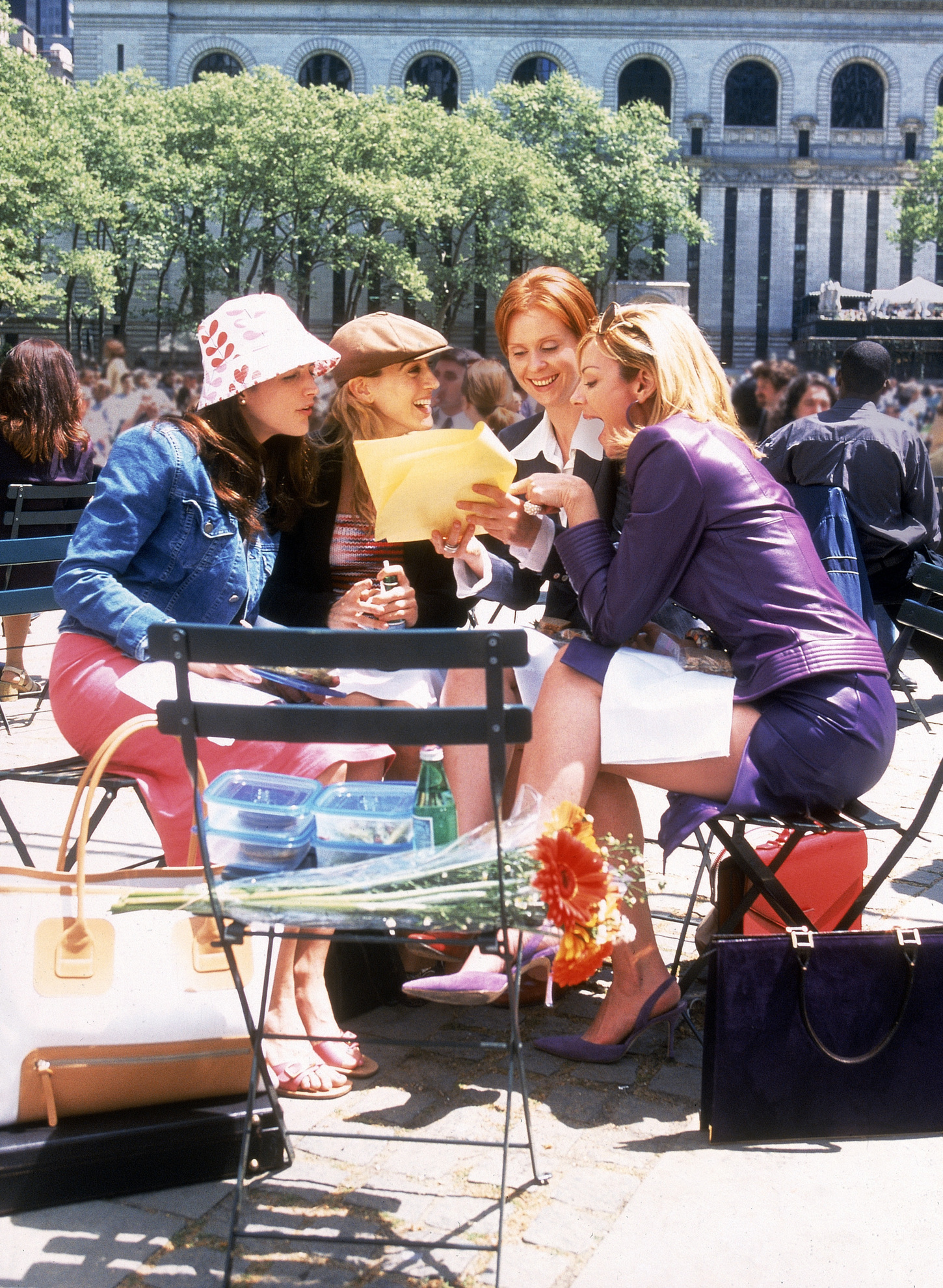
"Watching now, I envy the amount of time the women get to spend together"
The show might’ve been the spark that first lit the road towards another way of living, but it’s also been a security blanket. I’ve watched it in bed with my own Charlotte (and a chip pitta) after bumping into an ex on a night out; on repeat throughout an entire weekend following a long breakup with a friend who was going through the same thing. When I started panicking about turning thirty, it was SATC I turned to for reassurance—and later found my concerns mirrored back at me when Charlotte had a similar meltdown about turning 36: “I’ve thought about it and I’ve decided I’m sticking at 35… Because I’m just not where I thought I'd be at 36.”
Despite the show’s many and much-discussed flaws, it has undeniably forced us to challenge the status quo. Without it, we might never have questioned the moral superiority that sometimes comes with parenthood—or celebrated forgoing it (a moment’s appreciation for Samantha throwing an “I’m not having a baby” baby shower). We also wouldn’t have examined the “single tax” and how that cost is never rebalanced if you choose to forgo the milestones that society has deemed worthy of celebrating. For my part, SATC gave me permission to love something else fiercely and without apology—London, and it gave me a handy catchphrase to boot, one I also share with my two close friends when the occasion arises that “I’m on a date with my city”.
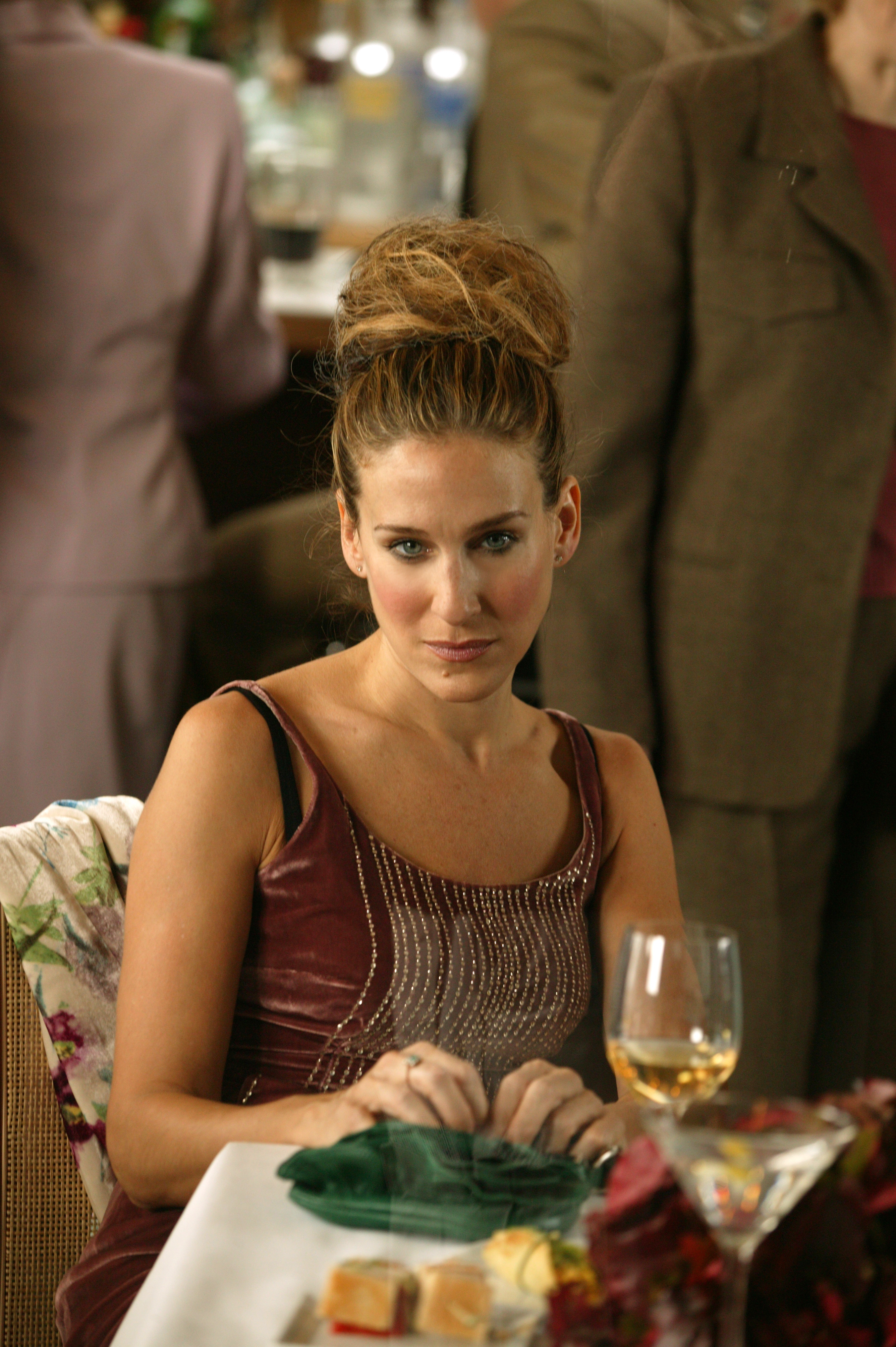
Carrie Bradshaw and the one continuous love of her life: New York
So yes, Carrie Bradshaw may have singlehandedly destroyed a generation’s understanding of personal finance—and given a certain wannabe writer very inflated ideas about salaries—but she also helped change the way women were written, watched, and witnessed on screen. Now, two years older than Carrie was when the show first aired, I think I’m ready to say goodbye. After all, as Carrie herself says, "Maybe the past is like an anchor holding us back. Maybe you have to let go of who you were to become who you will be." Or, maybe, it’s time to load Season One, Episode One again.
...And just like that, our girl is twirling in a tutu once more.

Mischa Anouk Smith is the News and Features Editor of Marie Claire UK.
From personal essays to purpose-driven stories, reported studies, and interviews with celebrities like Rosie Huntington-Whiteley and designers including Dries Van Noten, Mischa has been featured in publications such as Refinery29, Stylist and Dazed. Her work explores what it means to be a woman today and sits at the intersection of culture and style. In the spirit of eclecticism, she has also written about NFTs, mental health and the rise of AI bands.